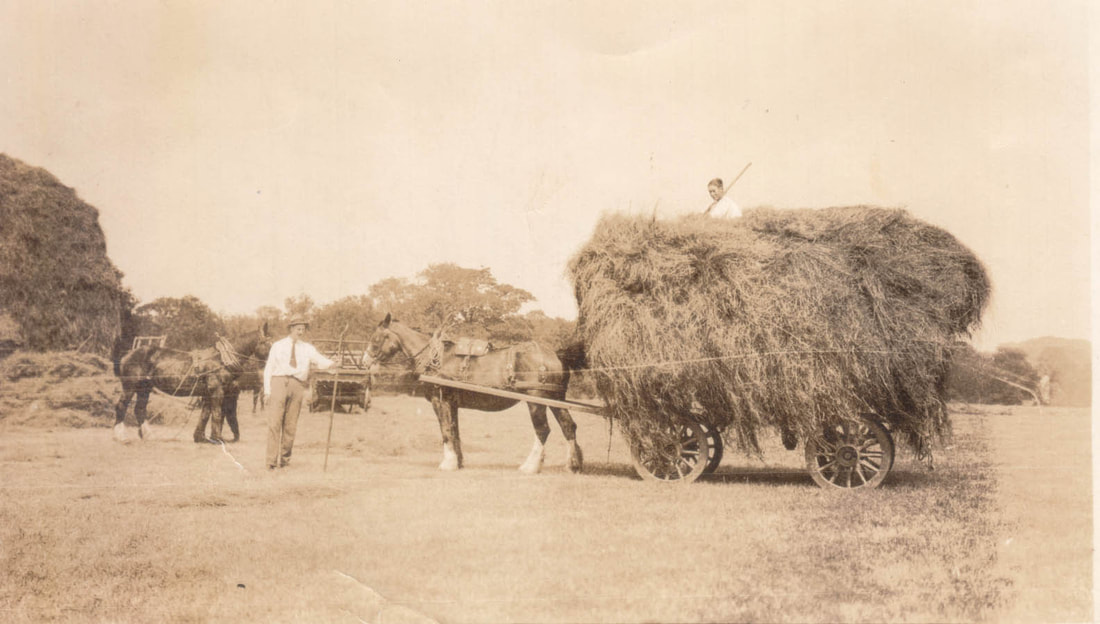 Making Hay at Longhoughton, Northumberland circa 1920s.
Making Hay at Longhoughton, Northumberland circa 1920s. 'Here my friends, we are just entered again upon another New Year!!!
Struggling against debts, taxes, tithes and feudal impositions, these are trying things.'
Among the hinds* there are not many to be found who were born in the parish where they are at present employed; and very few are there who drew their first breath in the cottage which is now assigned to them, or even on the property which they enrich by the sweat of their brow. They are hired, for the most part, from year to year, on an agreement which binds them to their employer for twelve months, beginning and ending about Whitsuntide ...
* The hind is an agricultural servant, whose engagement generally lasts for a year, and for whom a cottage is provided by his employer during the period for which he is hired. He is bound to find a woman to perform fieldwork.[1]
The Flitting
'Well there were usually three carts. Oo got a' the furniture on the three carts. Usually, the third yin wis what they ca'ed a short cart, that was a sma' yin. And the mother usually went in the wi' the youngest bairns and the cat, if ye had yin, or the pig in a bag. It would lie squealin in the straw.'[3]
'I'll tell you what I like best? Not having to flit every year. It was awful, thon flittin'. I remember driving a horse and cart through the square in Kelso with all the furniture and my mother up at the back.'[7]
Housing
'See an empty cottage before the hind has brought in his lumbering box there's, chairs and table, before he has set up his grate in the empty fireplace, fitted his window to the empty hole in the wall and you will think it's not good enough to be a stable.'[9]
‘… about ninety years ago when there were no ovens and no windows; when people shifted they had ti' take their windows and fireplaces with them. No, the houses weren't all alike, the windows were different sizes, and they had to be made right with boards and cow dung.'[10]
Memories of the 'Hirings'
Footnotes
https://www.google.co.uk/books/edition/_/NexK1GL4XWAC?hl=en&sa=X&ved=2ahUKEwjUo-eX6efzAhUllIsKHUMUB1MQ7_IDegQIBxAD
[2] Rev. Hastings M Neville, ‘A Corner in the North: Yesterday and Today with Border Folk’, 1909
[3] Ian MacDougall, Bondagers. Eight Scots Women Farm Workers,
Tuckwell Press, 2000. Mary King b. 1905 describing a flitting circa 1916. Cited in Dinah Iredale 'Bondagers'
[4] Barbara W Robertson, 'Family Life: Border Farm Workers in the Early Decades of the Twentieth Century', Scottish Life and Society. The Individual and Community Life, John Donald, Edinburgh, 2005. Cited in Dinah Iredale, 'Bondagers'.
[5] Bolton Parish Description, Scottish Women's Rural Institute, 1974. Cited in Dinah Iredale's 'Bondagers'
[6] Ellingham Women's Institute, Collectanea. Scraps of English Folklore, XI, 1904.
https://www.tandfonline.com/doi/abs/10.1080/0015587X.1925.9718328
[7] The Scotsman, Wednesday 5 July 1978. Liz Taylor interview with Mary Rutherford formerly of Mellerstain.
[8] John Bailey and George Culley, 'General View of the Agriculture of Northumberland, Cumberland and Westmorland.' 1805. Available through Google Books
https://books.google.co.uk/books/about/General_View_of_the_Agriculture_of_the_C.html?id=A3ZbAAAAQAAJ&redir_esc=y
[9] Walter White, Northumberland and the Border, London, 1859. Available through Archive.org.
https://archive.org/details/northumberlanda00whitgoog/page/n7/mode/2up?view=theater
[10] Rosalie E Bosanquet, 'In the Troublesome Times' 1929. Second-hand copies are readily available to purchase online.
[11] Ian and Kathleen Whyte, 'The Changing Scottish Landscape 1500 – 1800', 1991. Cited in Dinah Iredale 'The Bondagers'.
[12] Dinah Iredale, ‘Bondagers: The History of Women Farmworkers in Northumberland and South East Scotland’ 2nd Edition, Berwick, 2011. p. 105.
[13] Henley, 'Employment of Children, Young Persons and Women in Agriculture' Royal Commission on Labour, HMSO, 1867.
[14] Minnie Bell, School of Scottish Studies, University of Edinburgh. Cited by Dinah Iredale.
[15] Katrina Porteous, 'The Bonny Fisher Lad', People's History Series Ltd, 2004. May Douglas, cited in Dinah Iredale's 'Bondagers'.
[16] Arthur Wilson Fox, 'The Agricultural Labourer: Report upon The Poor Law Union of Glendale' (Northumberland), Royal Commission on Labour, HMSO, 1893. Cited in Dinah Iredale’s, 'Bondagers'
Other Links
https://books.google.co.uk/books?id=PwZhQUO4KlgC&printsec=frontcover&source=gbs_ge_summary_r&cad=0#v=onepage&q&f=false
https://bahs.org.uk/AGHR/ARTICLES/51n2a4.pdf
https://books.google.co.uk/books?id=2kdiAAAAcAAJ&printsec=frontcover&source=gbs_atb&redir_esc=y#v=onepage&q&f=false
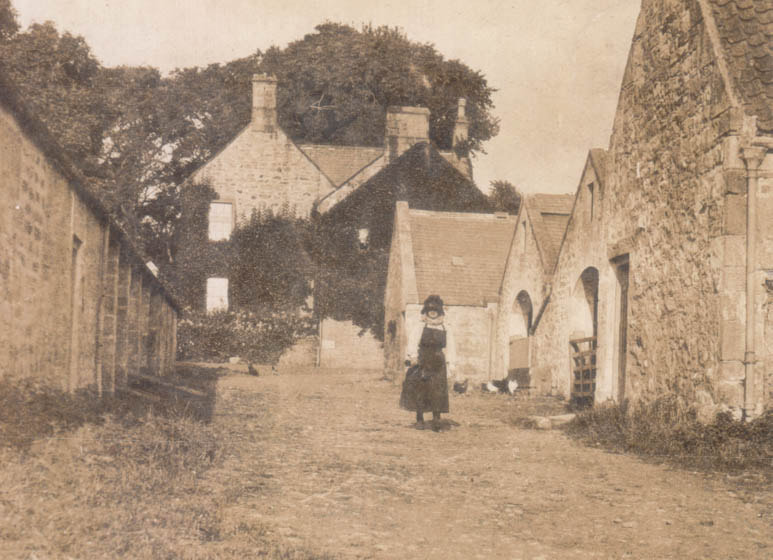
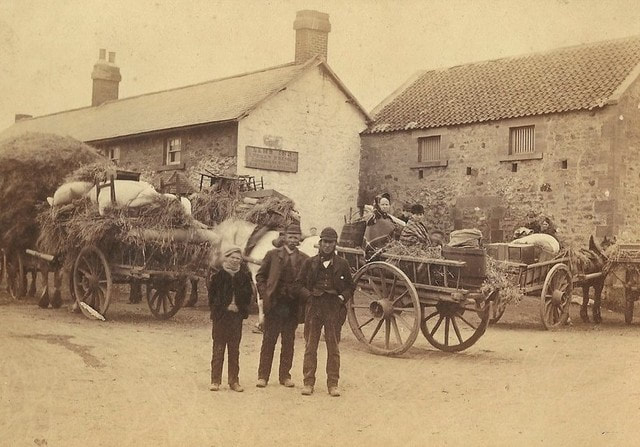
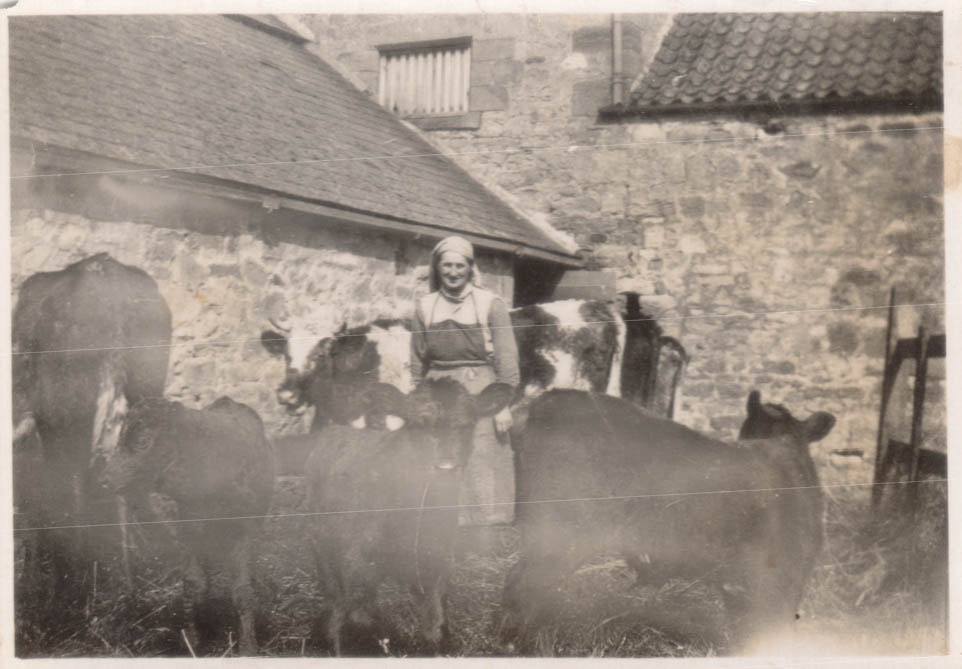
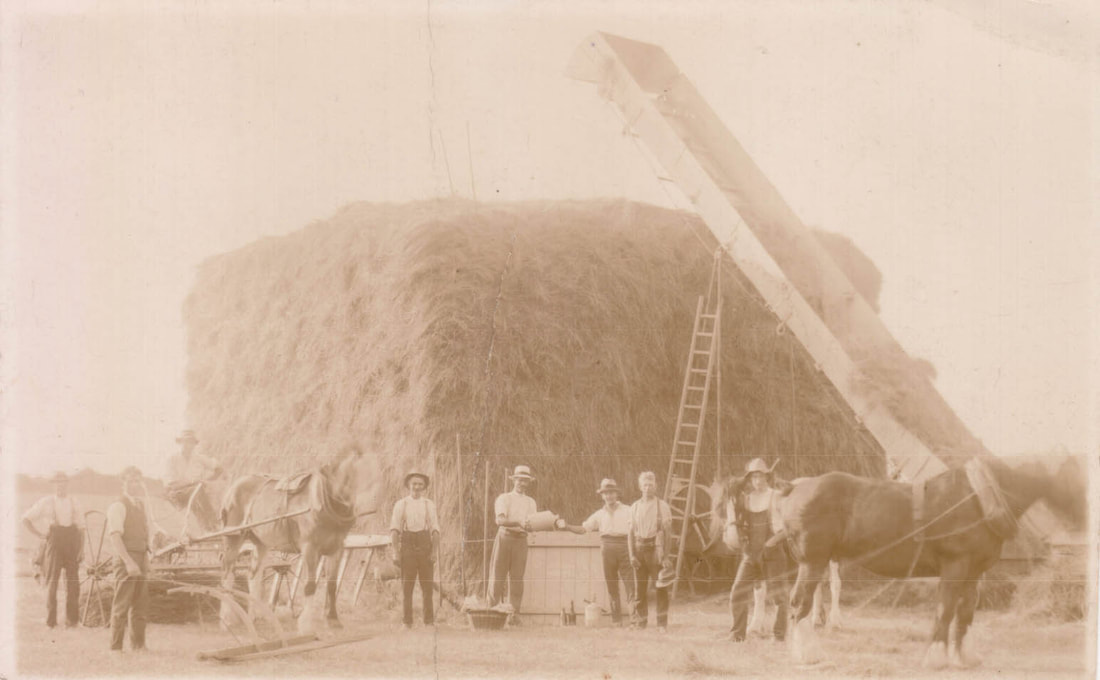
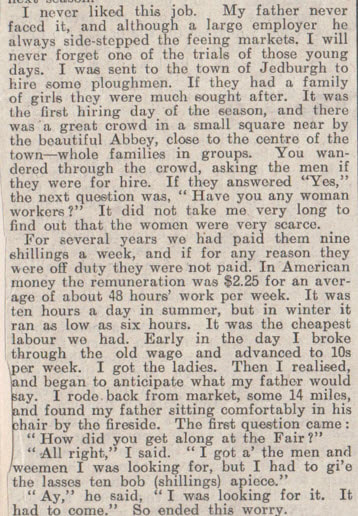
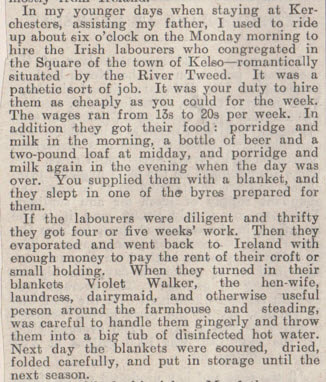
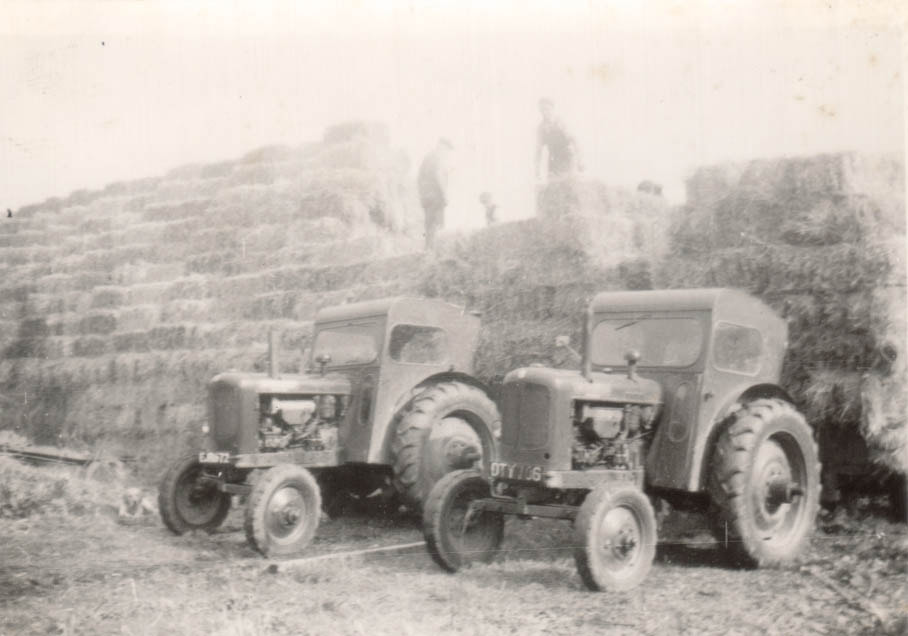
 RSS Feed
RSS Feed
